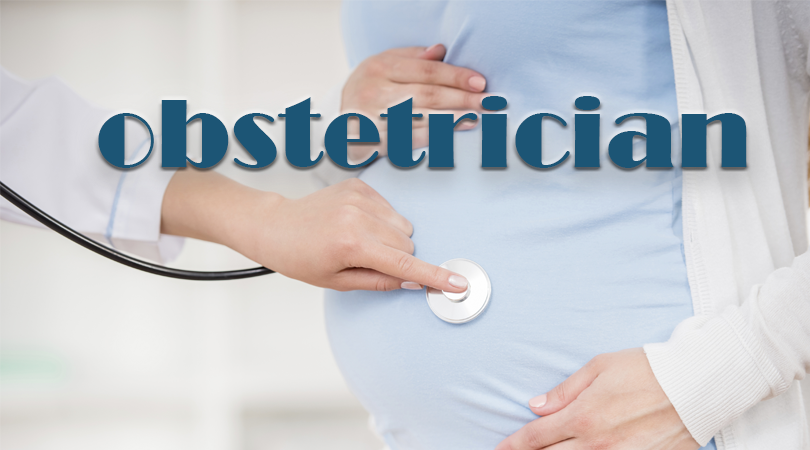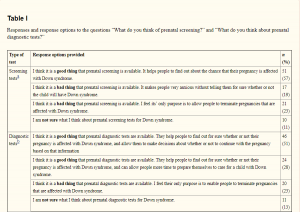
Advocacy aimed directly at obstetricians is common in the Down syndrome community. As the point of first contact between families and Down syndrome, how they see the condition is critical.
Prenatal advocacy usually centers around one of three topics:
- Pros and cons of prenatal testing
- Information provided to parents
- Abortion legislation
Prenatal screening can be done in the first and second trimester and involve an ultrasound exam and testing the mother’s blood. Results are usually available within a week and those who get a positive result usually get prenatal diagnostic tests.
“Certain diagnostic tests are procedures that can determine with greater than 99.9 percent accuracy whether or not a developing baby has a chromosomal difference. The two types of diagnostic tests are chorionic villus sampling (CVS) and amniocentesis.”
“Diagnostic test procedures are associated with a chance for miscarriage, which is estimated to be up to 1 percent for CVS, and less than 1 percent for amniocentesis.” – NIH
Some parents feel that testing helps future parents be prepared for a child with possible medical problems. Others feel strongly that testing only serves parents who wish to abort children who have a Ds diagnosis.
In a 2014 study, a majority of Canadian parents of children with Ds said that they think prenatal screening and testing is good.
Some parents advocate for what kind of information is given to parents who receive a positive test result.
“Many advocates for people with Down syndrome believe that high abortion rates following a diagnosis of this condition show an unfounded bias against those with Down syndrome. These advocates have succeeded in enacting federal and state legislation that requires women who receive a prenatal diagnosis of Down syndrome to receive positive information about the condition, thereby ending the nominal goal of value-neutral counseling and setting the stage for further normative shifts in clinical reproductive genetics as counseling expands because of cell-free testing.”
“What the Pennsylvania law (Chloe’s Law) and other similar laws enacted in eight states by the end of 2014 do is make sure that a woman who has undergone genetic testing for Down syndrome hears about the positive outcomes that are associated with having a child with this syndrome. Only positive information is mandated.” – Arthur L. Caplan, 2015
The federal version of this law, Prenatally and Postnatally Diagnosed Conditions Awareness Act, was signed by the President on Oct 8, 2008.
Bills introduced in Utah, North Dakota, Ohio, Indiana and Louisiana aim at making it illegal to have an abortion “solely” because of a positive test for Down syndrome.
While individuals within the community are active on both sides the major advocacy groups have stayed away from this topic.
“The Down- syndrome bills mark a relatively new frontier for antiabortion activists. Down-syndrome advocacy groups for the most part have stayed out of the abortion debate, neither endorsing the bills nor coming out against them.” – Washington Post, 2018
This series of topics create especially heated debates because of the abortion question. It is an area where battle lines are drawn and parents can be seen turning on each other.
“And the mother of one now-grown child with Down syndrome confided that she would “no doubt” have aborted a second pregnancy had prenatal testing — not available at the time of her first pregnancy — come back positive.
“I’d never knowingly bring another Down syndrome child into our lives,” she wrote. “My son turned 50 last September. He lives in a group home, has worked . . . for 29 years and has a good life, with lots of fun and quite a bit of independence. My life has been filled with advocacy for those with developmental disabilities. We are the lucky ones with our son. Nevertheless, I would fight to the dying breath for a woman’s right to choose.”” – Washington Post, 2018
Whatever your belief regarding prenatal testing and abortion, hopefully we can all agree that parents deserve to get the best information available. We hope that obstetricians are beginning to seek out that information and as new generations begin to fill those jobs attitudes will change.


